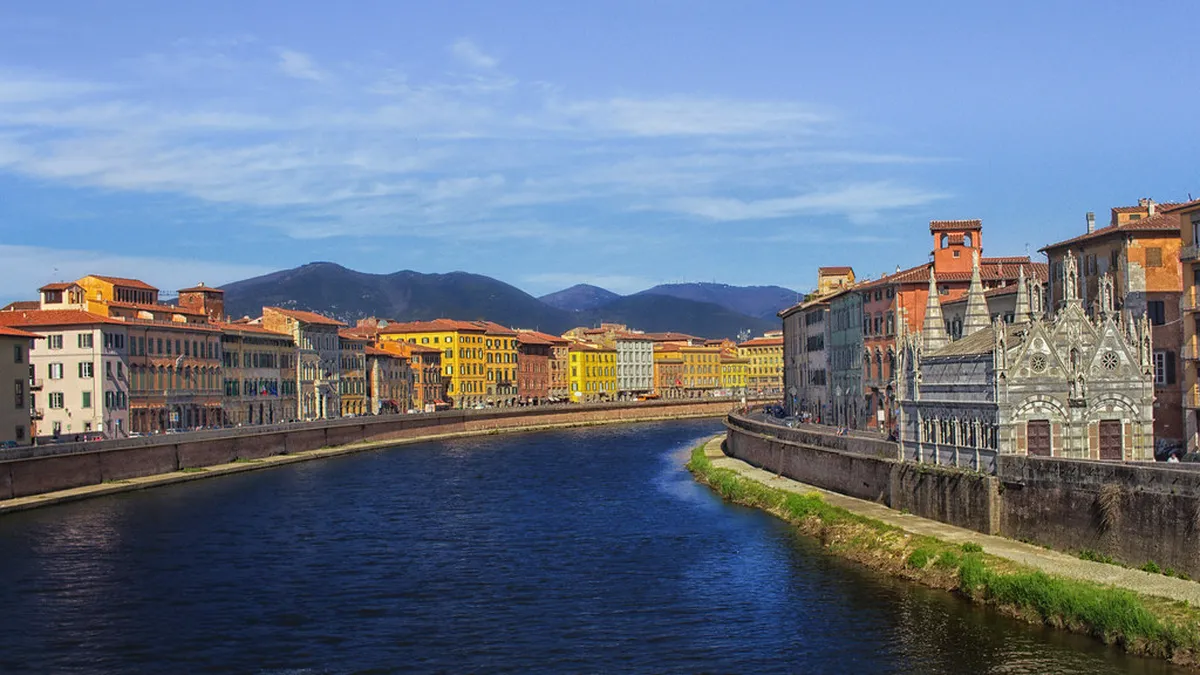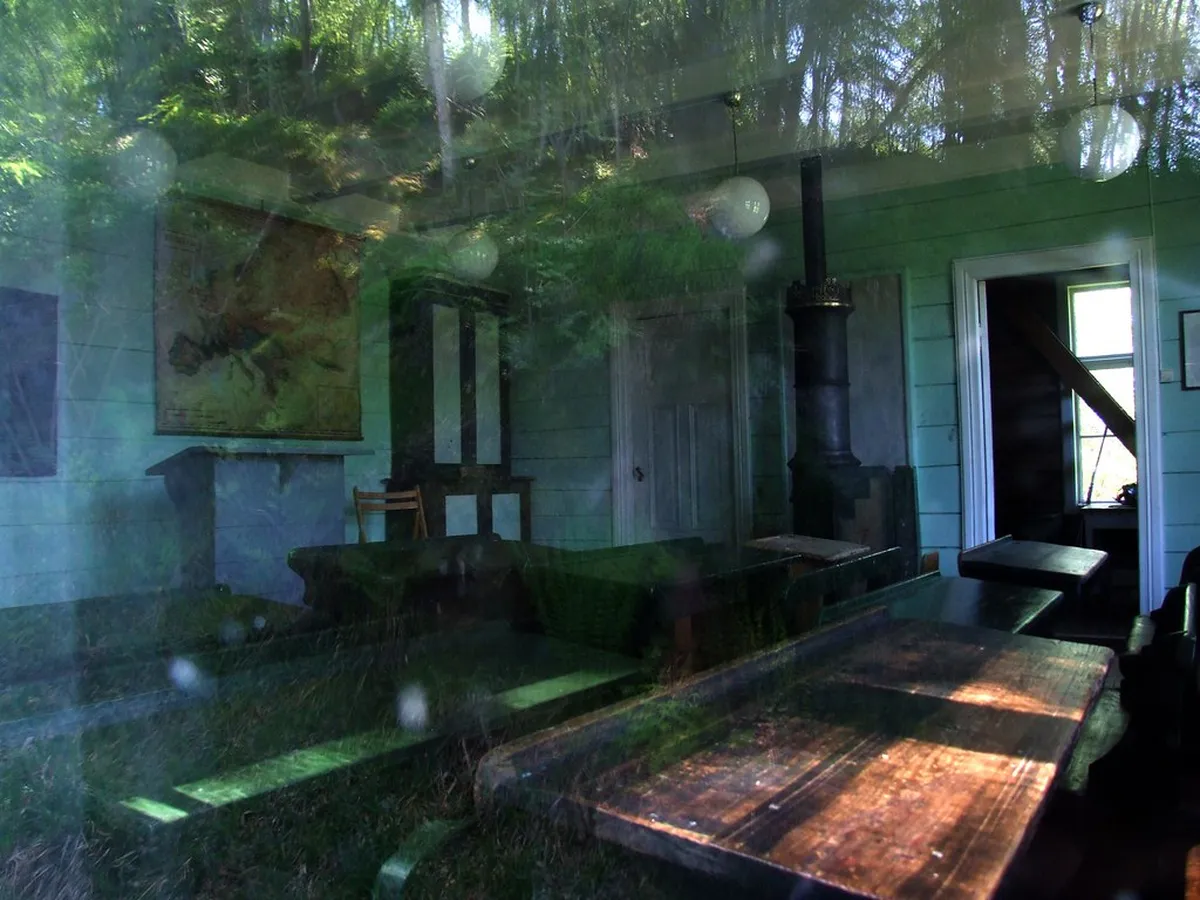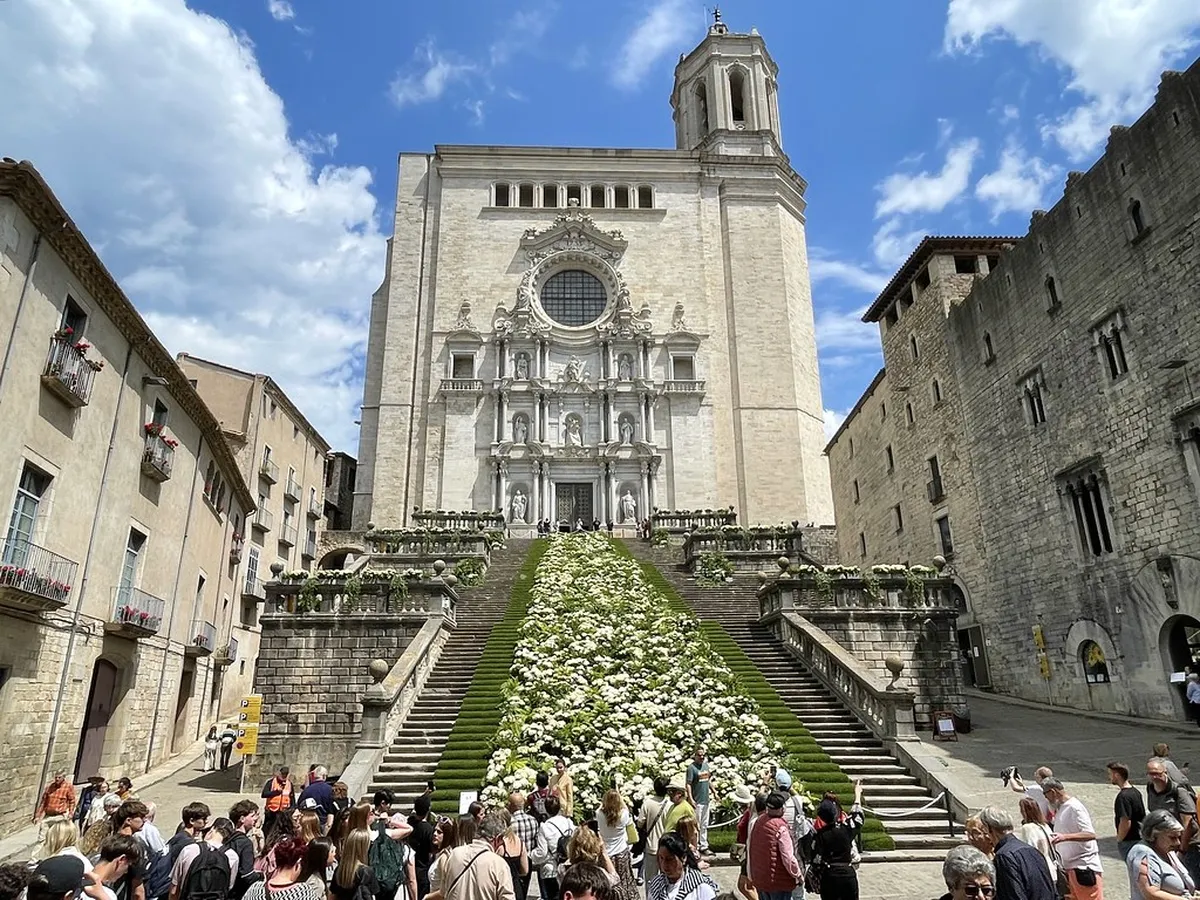Qingdao Safety Guide: Etiquette, Scams & Travel Security (2025)
Qingdao ranks among China's safest cities for international travelers, combining low crime rates with excellent emergency services and tourist-friendly infrastructure that enables confident exploration of top attractions, beautiful beaches, and cultural sites. Understanding local safety practices, cultural etiquette, and potential risks ensures peaceful enjoyment of your coastal adventure while demonstrating respect for local customs and community values. This comprehensive guide provides essential safety information, cultural guidance, and practical tips that enable worry-free exploration while fostering positive interactions with the welcoming people of China's premier coastal destination.

Qingdao Safety Overview: Secure Coastal Destination
Qingdao maintains exceptional safety standards with violent crime virtually nonexistent and petty crime rare, particularly in tourist areas. The city's modern infrastructure, professional emergency services, and tourist-friendly police presence create environments where travelers can focus on experiences rather than security concerns.
The coastal city's commitment to international tourism has resulted in comprehensive safety measures, multilingual emergency services, and well-trained personnel familiar with assisting international visitors. These systems, combined with genuine local hospitality, create supportive environments for travelers of all experience levels.
Understanding basic safety practices and cultural norms enhances personal security while demonstrating respect for local customs, leading to more positive interactions and authentic cultural experiences throughout your Qingdao journey. Get deeper into qingdao via Qingdao festival guide.
General Safety Environment
Crime Rates and Security
Excellent Safety Statistics:
- Violent Crime: Extremely rare, particularly against tourists
- Petty Theft: Uncommon but basic precautions still recommended
- Tourist Areas: Enhanced security presence in major tourist zones
- Police Presence: Regular patrols and dedicated tourist police units
- Emergency Response: Professional, prompt emergency services throughout the city
- International Assistance: English-speaking emergency support available
Safe Areas and Neighborhoods:
- Central Shinan District: Heavy tourist presence with excellent security
- Beach Areas: Well-patrolled with lifeguard and security services
- Major Attractions: Enhanced security at popular tourist destinations
- Shopping Districts: Commercial areas with comprehensive security coverage
- Hotel Areas: Accommodation districts with professional security standards
For comprehensive accommodation security information, explore our detailed neighborhood guide.
Emergency Services and Support
Essential Emergency Numbers:
- Police Emergency: 110 (24-hour immediate response)
- Medical Emergency: 120 (ambulance and emergency medical services)
- Fire Department: 119 (fire and rescue services)
- Tourist Assistance: 12301 (tourist complaints and assistance hotline)
- International SOS: Private emergency assistance for international travelers
Tourist Police Services:
- Dedicated Units: Specially trained officers for tourist assistance
- Language Support: English-speaking officers available in tourist areas
- Problem Resolution: Assistance with disputes, directions, and information
- Crime Reporting: Simplified procedures for international visitors
- Prevention Education: Proactive safety information and awareness
Cultural Etiquette and Social Customs
Essential Cultural Understanding
Basic Social Etiquette:
- Greeting Customs: Slight bow or handshake with both hands shows respect
- Personal Space: Chinese culture comfortable with closer personal proximity
- Public Behavior: Maintain moderate voice levels and avoid loud conversations
- Respect for Elders: Show deference to older individuals in social situations
- Gift Giving: Modest gifts appreciated; avoid expensive items causing embarrassment
- Face-Saving: Avoid causing public embarrassment or loss of dignity
Religious and Cultural Sites:
- Temple Etiquette: Dress modestly and remove hats when entering temples
- Photography Rules: Ask permission before photographing people or religious sites
- Respectful Behavior: Quiet, respectful conduct at spiritual and cultural locations
- Appropriate Dress: Conservative clothing at religious and cultural sites
- Cultural Sensitivity: Understanding significance of cultural practices and traditions
Dining and Social Customs
Restaurant Etiquette:
- Shared Dining: Most dishes intended for sharing among the table
- Chopstick Rules: Never stick chopsticks upright in rice bowls
- Tea Service: Tap fingers on table to thank for tea refills
- Host Courtesy: Allow hosts to serve guests as sign of respect
- Pace of Eating: Take time to enjoy meals and conversation
- Payment Protocol: Hosts typically pay; guests offer but usually have offers declined
For comprehensive dining customs and etiquette, explore our detailed food and drink guide.
Social Interaction Guidelines:
- Business Cards: Receive with both hands and read carefully before storing
- Conversation Topics: Avoid sensitive political discussions
- Compliments: Appreciate local culture, food, and hospitality
- Language Effort: Attempt basic Chinese phrases showing cultural respect
- Patience: Understanding that communication may require extra time and patience
Common Scams and Prevention
🎯 Insider Tip: Discover the best Etiquette experiences with Viator Tours!
Tourist-Targeted Scams
Tea House Scam:
- How It Works: Friendly strangers invite tourists to expensive tea houses
- Warning Signs: Unsolicited approaches by overly friendly English speakers
- Prevention: Decline invitations from strangers to restaurants or tea houses
- Safe Alternative: Choose your own dining venues or ask hotel concierge
- If Targeted: Politely decline and walk toward crowded public areas
Counterfeit Money:
- Risk Areas: Small vendors and markets with limited lighting
- Prevention: Use mobile payments (WeChat Pay, Alipay) when possible
- Detection: Check bills for proper texture, watermarks, and security features
- Safe Practice: Exchange money at banks and official exchange counters
- Response: Report counterfeit currency to police immediately
Overcharging and Price Manipulation:
- Common Locations: Tourist markets and some taxi services
- Prevention Strategies: Research standard prices and negotiate beforehand
- Transportation: Use metered taxis or ride-sharing apps with fixed pricing
- Shopping: Compare prices and be prepared to walk away
- Receipt Practice: Always request receipts for expensive purchases
Digital and Technology Scams
WiFi Security:
- Fake Hotspots: Avoid unverified public WiFi networks
- Password Requests: Be suspicious of networks requesting excessive personal information
- Secure Transactions: Avoid financial transactions on public networks
- VPN Usage: Use legitimate VPN services for additional security
- Hotel Networks: Verify official hotel network names with staff
For comprehensive connectivity and digital security information, consult our connectivity guide.
Payment App Security:
- Official Apps: Download only from official app stores
- Account Security: Use strong passwords and enable two-factor authentication
- Transaction Monitoring: Regularly review payment history for unauthorized charges
- Limit Settings: Set reasonable daily spending limits
- Secure Networks: Only access financial apps on secure, private networks
Transportation Safety
🎯 Insider Tip: Discover the best Etiquette experiences with Viator Tours!
Public Transportation Security
Metro and Bus Safety:
- Platform Safety: Stand clear of platform edges and allow passengers to exit first
- Personal Belongings: Keep bags closed and valuables secure in crowded areas
- Emergency Procedures: Familiarize with emergency exits and communication methods
- Peak Hour Caution: Extra attention during crowded rush hour periods
- Station Security: Report suspicious activity to station personnel
For comprehensive public transport guidance, consult our detailed transport guide.
Taxi and Ride-Sharing Safety:
- Official Taxis: Use licensed taxis with visible identification and meters
- App-Based Services: Prefer DiDi and other official ride-sharing platforms
- Route Awareness: Use navigation apps to monitor routes
- Share Information: Send trip details to friends or family
- Payment Security: Use app payments rather than cash when possible
Walking and Pedestrian Safety
Street Safety:
- Traffic Rules: Follow pedestrian signals and use designated crossings
- Vehicle Awareness: Chinese drivers may not always yield to pedestrians
- Evening Precautions: Stick to well-lit, populated areas after dark
- Weather Conditions: Exercise extra caution during rain or poor visibility
- Group Travel: Walk with companions when possible, especially at night
Beach and Water Safety
Coastal Safety Guidelines
Swimming Safety:
- Lifeguard Areas: Swim only in designated areas with lifeguard supervision
- Water Conditions: Check daily conditions and heed warning flags
- Personal Limits: Be honest about swimming ability and physical condition
- Buddy System: Never swim alone; always swim with companions
- Weather Awareness: Avoid water during storms or severe weather
- Emergency Equipment: Know location of life rings and emergency phones
Beach Equipment and Sun Safety:
- Sun Protection: High SPF sunscreen, protective clothing, and shade structures
- Hydration: Maintain adequate water intake during hot weather
- Equipment Security: Use hotel safes for valuables during beach visits
- First Aid Awareness: Know location of beach first aid stations
- Marine Life: Observe local marine life from safe distances
For comprehensive beach safety and facility information, explore our detailed beaches guide.
Health and Medical Safety
🎯 Insider Tip: Discover the best Etiquette experiences with Viator Tours!
Healthcare System and Services
Medical Facilities:
- International Hospitals: Facilities with English-speaking staff and international standards
- Emergency Services: 24-hour emergency rooms with modern equipment
- Pharmacy Access: 24-hour pharmacies for basic medical needs
- Insurance Coverage: Ensure adequate travel health insurance
- Medical Records: Carry important medical information in English and Chinese
Common Health Considerations:
- Air Quality: Monitor daily air quality reports for outdoor activity planning
- Food Safety: Choose reputable restaurants with high turnover
- Water Safety: Stick to bottled or properly boiled water
- Heat Illness: Recognize signs of heat exhaustion during summer months
- Altitude Changes: Take precautions when visiting mountain areas
Food and Water Safety
Safe Dining Practices:
- Restaurant Selection: Choose busy restaurants with visible food preparation
- Temperature Awareness: Ensure hot foods are served steaming hot
- Seafood Caution: Verify freshness, especially for shellfish
- Street Food: Select vendors with high turnover and visible cooking
- Beverage Safety: Sealed bottled water and beverages safest option
Women's Safety and Solo Travel
Female Traveler Considerations
General Safety for Women:
- Cultural Respect: Chinese culture generally very respectful toward women
- Solo Travel: Qingdao considered very safe for solo female travelers Keep exploring Qingdao: Best in Qingdao.
- Accommodation: Choose well-reviewed hotels in safe neighborhoods
- Transportation: Use official transportation services, especially at night
- Social Interactions: Chinese men typically respectful; unwanted attention rare
- Emergency Support: Women's safety hotlines and support services available
Practical Safety Tips:
- Communication: Share itinerary and check in regularly with home contacts
- Intuition: Trust instincts and avoid situations that feel uncomfortable
- Appearance: Dress modestly, especially at cultural and religious sites
- Evening Activities: Stay in well-lit, populated areas after dark
- Local Advice: Seek recommendations from hotel staff and other women travelers
Emergency Procedures and Crisis Management
Emergency Contact Information
Essential Phone Numbers:
- Police: 110 (24-hour emergency response)
- Medical Emergency: 120 (ambulance and emergency medical)
- Fire Department: 119 (fire and rescue services)
- Tourist Hotline: 12301 (tourist assistance and complaints)
- Your Embassy: Contact information for your nationality's consular services
- Hotel Contact: 24-hour hotel desk number for assistance
Embassy and Consular Services:
- US Consulate Qingdao: Services for American citizens
- Other Consulates: Various countries maintain consular presence
- Emergency Services: Passport replacement, legal assistance, medical coordination
- Travel Advisories: Current safety information and travel updates
- Communication Assistance: Help contacting family during emergencies
Crisis Response Planning
Personal Emergency Preparation:
- Emergency Contacts: List of important contacts in Chinese and English
- Documentation: Copies of passport, visa, and important documents
- Medical Information: Health conditions, allergies, and medications
- Insurance Details: Travel insurance policy numbers and contact information
- Communication Plan: Established check-in schedule with home contacts
Natural Disaster Preparedness:
- Weather Monitoring: Stay informed about weather conditions and warnings
- Evacuation Routes: Know hotel and area evacuation procedures
- Emergency Supplies: Basic emergency kit with water, snacks, and medications
- Communication Backup: Multiple ways to contact emergency services and family
- Local Updates: Monitor local news and official announcements
Legal Considerations and Regulations
💡 Pro Tip: Book your Etiquette adventures in advance through Viator for the best deals!
Important Legal Awareness
Chinese Law Compliance:
- Drug Policy: Zero tolerance for illegal drugs with severe penalties
- Alcohol Regulations: Legal drinking age 18; public intoxication discouraged
- Photography Restrictions: Avoid photographing military, police, or government facilities
- Political Sensitivity: Avoid political discussions and demonstrations
- Cultural Respect: Respect religious sites and cultural practices
Documentation Requirements:
- Passport: Carry passport at all times; required for many services
- Visa Compliance: Ensure visa validity and comply with conditions
- Registration: Hotels handle police registration; verify completion
- Extension Procedures: Understand visa extension processes if needed
- Departure Requirements: Ensure all legal obligations met before departure
Technology and Communication Safety
💡 Pro Tip: Book your Etiquette adventures in advance through Viator for the best deals!
Digital Security
Device Security:
- Backup Data: Regular backups of important photos and documents
- Password Protection: Strong passwords and lock screens on all devices
- Public Charging: Avoid public USB charging ports; use wall adapters
- WiFi Security: Use VPN services for additional privacy protection
- App Updates: Keep apps and operating systems updated for security
Communication Safety:
- Contact Sharing: Share location and travel plans with trusted contacts
- Regular Check-ins: Establish communication schedule with home
- Emergency Apps: Download offline emergency information and contact apps
- Local SIM Security: Secure local SIM card and account information
- Social Media Caution: Avoid posting real-time location information
Seasonal Safety Considerations
🌟 Local Expert Tip: Get the most out of your Etiquette visit with guided tours!
Summer Safety (June-August)
Heat-Related Safety:
- Sun Protection: High SPF sunscreen and protective clothing essential
- Hydration: Increased water intake needs in hot, humid conditions
- Heat Illness: Recognize signs of heat exhaustion and heat stroke
- Activity Timing: Plan outdoor activities during cooler morning and evening hours
- Air Quality: Monitor pollution levels affecting outdoor activities
Beach and Water Safety:
- Crowded Conditions: Extra attention needed during peak beach season
- Water Quality: Higher risk of water-related illness during hot weather
- Storm Preparation: Summer storms can develop quickly near coast
- UV Exposure: Extreme UV levels requiring comprehensive protection
Winter Safety (December-February)
Cold Weather Precautions:
- Appropriate Clothing: Layer clothing for variable temperatures
- Ice and Snow: Careful walking on potentially slippery surfaces
- Indoor Air Quality: Heating systems may affect air quality
- Reduced Daylight: Plan activities within daylight hours when possible
- Emergency Warmth: Know locations of heated public spaces
Combining Safety with Qingdao Exploration
Safe Sightseeing Strategies
Attraction Safety:
- Popular Sites: Enhanced security at major attractions
- Group Tours: Added security and local knowledge with guided experiences
- Time Management: Plan visits during optimal safety conditions
- Local Advice: Leverage hotel concierge knowledge for safety insights
- Emergency Planning: Know emergency procedures at each attraction
Cultural Site Etiquette:
- Respectful Behavior: Appropriate conduct at temples and cultural sites
- Photography Guidelines: Understanding restrictions and permission requirements
- Dress Codes: Modest clothing at religious and cultural locations
- Cultural Sensitivity: Appreciating significance of cultural practices
Safe Adventure Planning
Mountain and Nature Safety:
- Weather Monitoring: Check conditions before mountain visits
- Equipment Preparation: Proper gear for hiking and outdoor activities
- Group Hiking: Travel with companions on mountain trails
- Emergency Communication: Cell coverage and emergency procedures
- Physical Preparation: Honest assessment of fitness levels
Day Trip Safety:
- Transportation Security: Safe transport for regional exploration
- Documentation: Carry identification and emergency information
- Communication Plans: Check-in schedules and contact information
- Local Resources: Emergency contacts and services in destination areas
Qingdao's excellent safety record and modern infrastructure create secure environments for international travelers seeking authentic coastal experiences. Understanding basic safety practices and cultural customs enhances personal security while fostering positive interactions that create lasting memories of Chinese hospitality and coastal beauty.
Plan your safe and culturally sensitive Qingdao exploration using our comprehensive travel guide, and discover how preparation and cultural awareness enhance both safety and enjoyment in this remarkable coastal destination.



